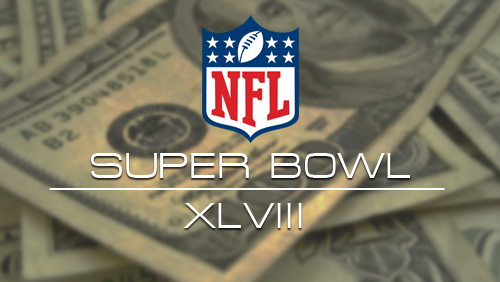 The Super Bowl is unquestionably great entertainment value, but its economic value is highly questionable.
The Super Bowl is unquestionably great entertainment value, but its economic value is highly questionable.
Although there is huge interest from both the general public and gamblers –in Nevada, alone, betting on Sunday’s game may eclipse $100 million for the first time –the Super Bowl’s positive economic impact upon the host city is dramatically over-hyped.
Since the late 1990s, the National Football League has claimed that a host city will recoup at least $400 million in economic activity from a Super Bowl. That is the pitch that has been made to cities across America when the NFL has sought (often successfully) to convince local politicians to spend several hundred millions of taxpayer dollars to build a new (or reconstruct an old) stadium for a wealthy NFL team owner.
The bottom-line, however, is that such promises are routinely generated by deeply flawed advocacy studies that wildly overstate the potential economic windfall for a Super Bowl host city. History teaches us that dividing these projected windfall numbers by at least ten will get one closer to the actual economic benefit.
Numerous academic research studies conducted after respective Super Bowls find either minimal or simply no positive economic impact upon the host city.
For example, economists Robert Baade and Victor Matheson estimated the economics of Super Bowls from 1970 through 2001. They found that the economic impact of the average Super Bowl was at most one-quarter of the NFL’s pre-Super Bowl estimates.Baade and Matheson’s further examination of twenty-five Super Bowls from 1973 to 1997 found the game added an underwhelming 537 jobs to the average host city.
Dennis Coates and Brad Humphrey’s study of American professional sports playoffs found that hosting the Super Bowl did not raisereal per capita personal income in the host city. The Texas Comptroller estimated the net benefits to the state from Houston’s January 2004 Super Bowl were less than $1 million.
Phil Porter was the first economist to examine the effects of Super Bowls on host cities.He studied sales receipts and sales taxes surrounding the 1979 to 1984 Super Bowls. Porter found no increase in taxable sales in the host community compared to previous years without the mega-event.More recently, Baade, Baumann, and Matheson studied taxable sales in Miami, Tampa, and Orlandofor the effects of hosting Super Bowls on these Florida locations. Not only did these mega-events have little effect on taxable sales, on average they may have actually reducedsales.
Why do Super Bowls fail to live up to their economic hype? Matheson finds that most pre-game Super Bowl impact studies are flawed because they do not take account of the following factors.
First, Super Bowl visitors “crowd out” other tourists who would otherwise have visited the already popular destination, whether a warm-weather southern locale or a perennial tourist favorite, such as New York City, at this time of year. Hence, the Super Bowl may simply supplant rather than supplement the city’s regular tourist economy.
Second, it costs local governments a great deal of money to host a Super Bowl.Local taxpayers must cover higher sanitation and public transportation costs, andthe costs of public safety, that is, the extra policing required to provide heightened counterterrorism security, as well as to cope with traffic congestion and to minimizevandalism. These direct costs always amount to several million dollars.
Third, consumer spending on the Super Bowlmerely diverts spending from other things, which is what economists refer to as the “substitution effect.” As Matheson explains, “To the extent that attendees at a sporting event spend their money on that event instead of on other activities in the local economy, the sporting event simply results in a reallocation of expenditures in the economy rather than a real net increase in economic activity.”
Fourth, much of the money spent in the host city during Super Bowl week does not remain in the local economy. Most of the companies providing hotel rooms, rental cars, and restaurants are national chains whose profits do not stay in the local economy; instead, they trickle-up to stockholders across the country.
What of this year’s destination? Is New York proving to be a better economic bet than Super Bowl history would suggest? Not a chance.
Two economic signals are already flashing red. Only a few days out from the game, both New York City and neighboring Newark, New Jersey (where Sunday’s game will take place) still have plenty of reasonably priced hotel rooms available for Super Bowl weekend. Another very telling signal is the fact that Super Bowl tickets are currently available in secondary marketplaces, such as StubHub.com, for half of their earlier price.
When an individual wagers on the Super Bowl, the best research evidence shows that it is good for one’s mind, body, and soul. With the right combination of luck and skill, by the end of the game it may also prove good for one’s wallet. But, when an American cityplaces ahuge bet on hosting the event, their losing hand is guaranteed long before kick-off.
Patrick Basham is director of the Democracy Institute (www.democracyinstitute.org). With John Luik, he coauthored the book, Gambling: A Healthy Bet.